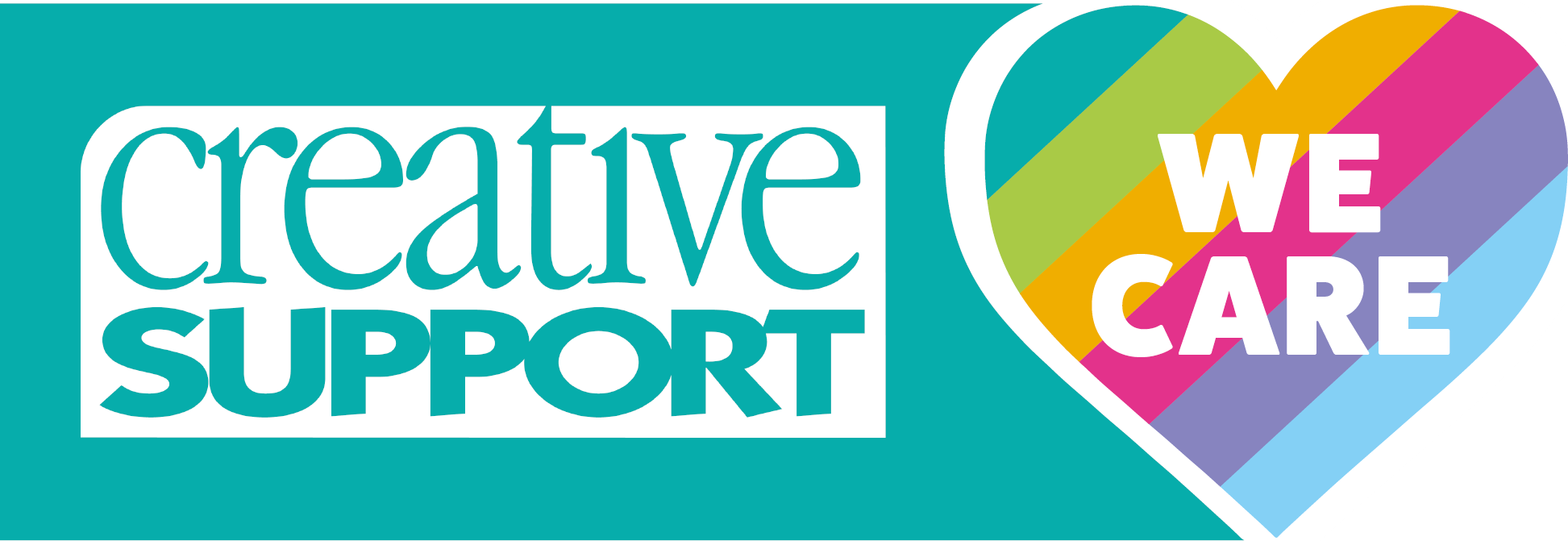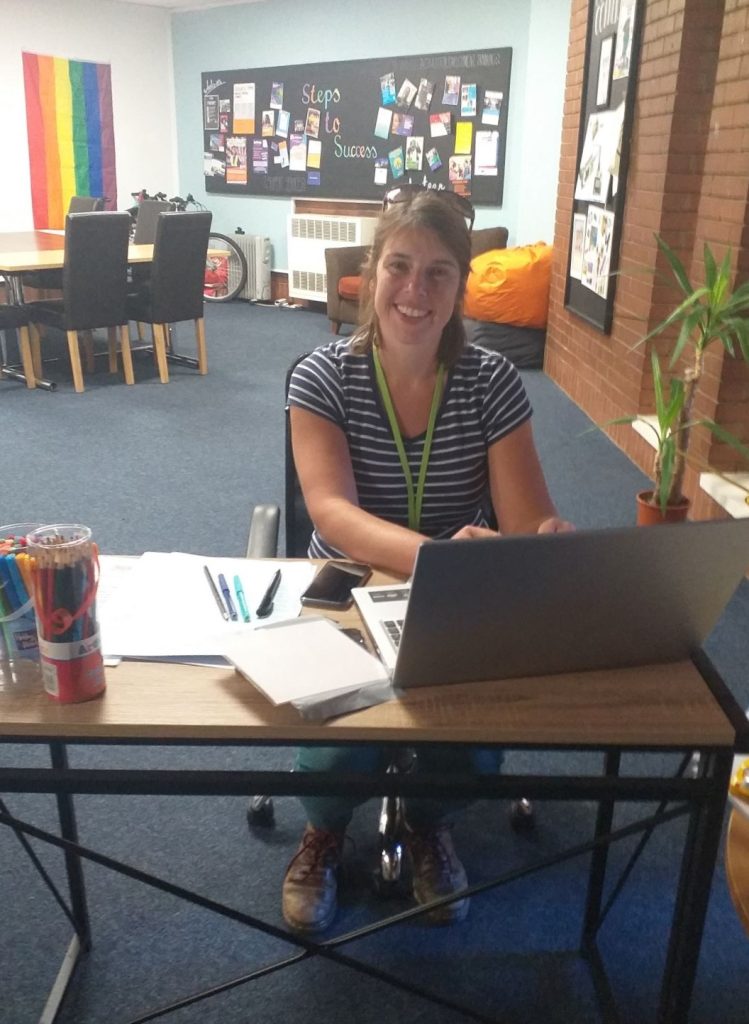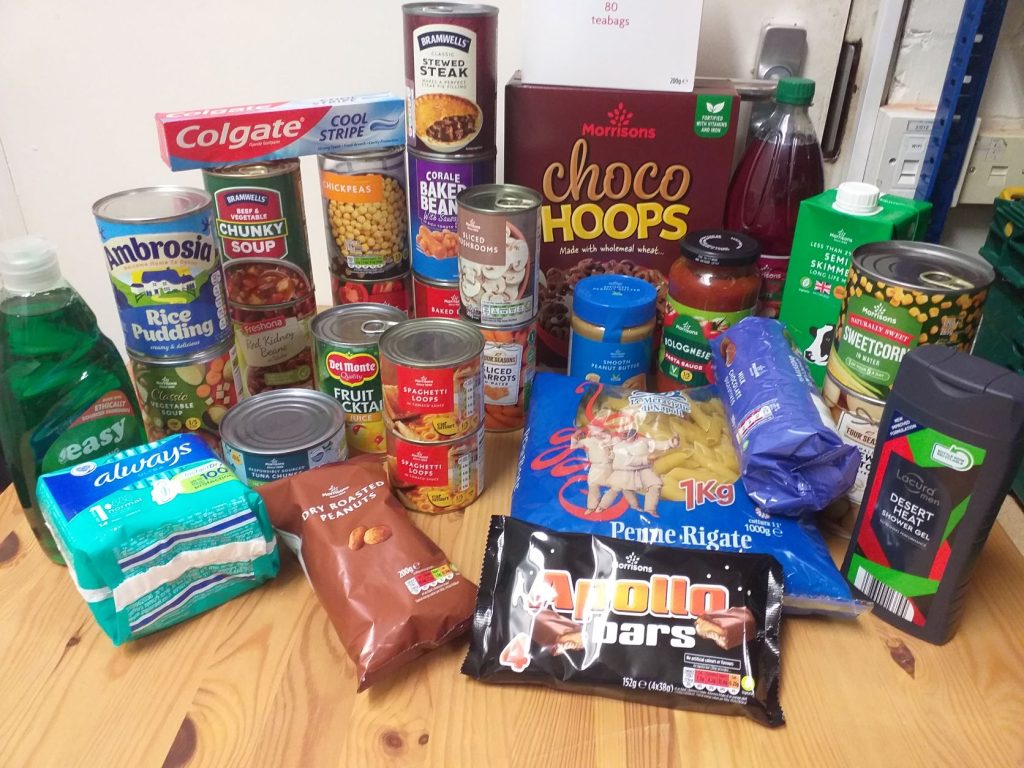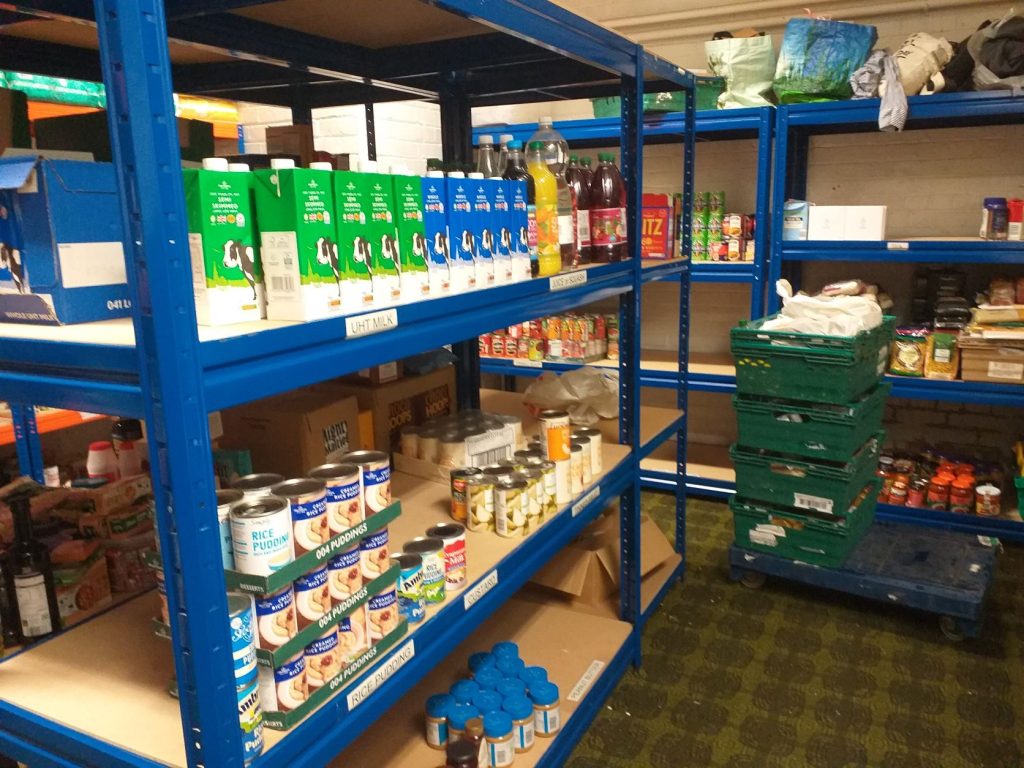Sarah’s Blog; Accessing Your Local Foodbank
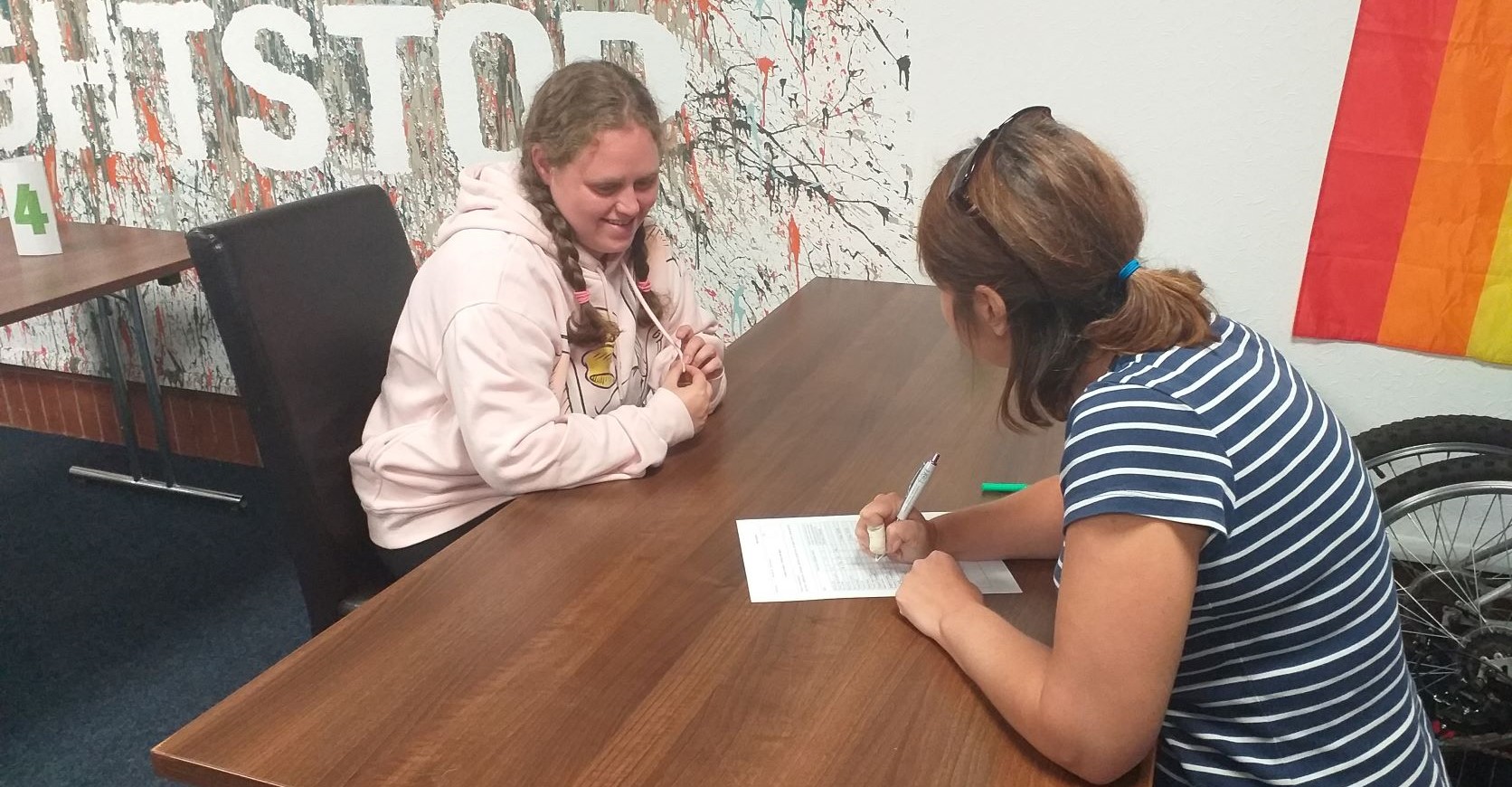
Sarah Marshall, one of our members of staff in Stockport and a regular food bank volunteer, has written a guest blog explaining the full process of using a food bank and what to expect.
With the rise in the cost of living and increasing fuel bills, you may be finding yourself having difficulty makng ends meet, especially if you have an unexpected large bill like a broken boiler. If this is you, then accessing your local food bank is an option you have. Food banks are for anyone who is having difficulty paying for food – whether you have a job or not.”
What’s the process?
What happens when I arrive at a food bank?
When you arrive at a food bank session, staff will take your details to check you have a referral. They’ll sit down with you and chat with you about your circumstances, so that they can get an idea of how best they can help you. You’ll also be asked if you have any dietary needs or preferences, and if you need any additional items like toiletries.
They might also ask you about your circumstances more generally. Of course, it’s up to you how much you share, but they’re asking in case they can point you to other kinds of support. Food bank staff often know of all sorts of benefits and schemes that may be able to give you additional support. It’s about giving you proper support, not just a quick fix for now.
Making up your parcel should take 5-10 minutes, but may be longer for family-sized parcels or when it’s busy. You’re welcome to check over the parcel before you leave just in case there’s anything you’d rather not have in there or that you wouldn’t be able to eat.
Who can food banks help?
There’s no ‘sort of person’ who goes to food banks. Some of us may mistakenly think that food banks are just for people who are homeless or similar.
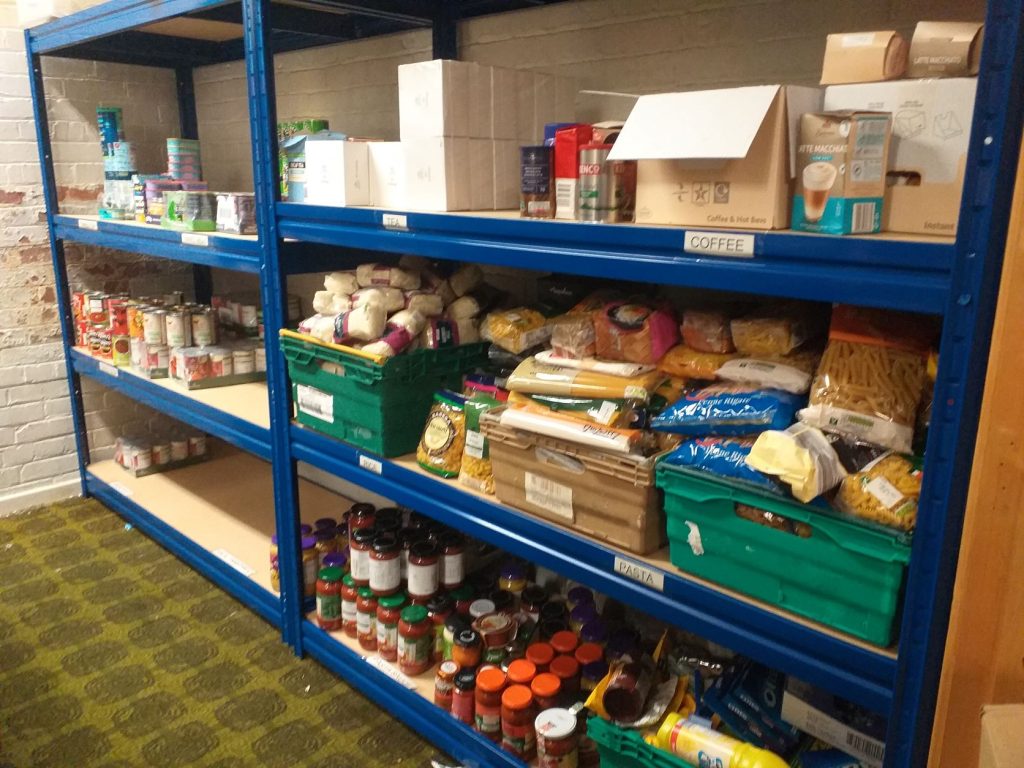 Food banks are for anyone whose personal situation means they are struggling to buy food!
Food banks are for anyone whose personal situation means they are struggling to buy food!
In the current climate, you may be struggling this way even if you are in full-time employment. If this is you please don’t think that having a job means you won’t qualify – your need is all that matters, and we all need to eat.
You may be struggling because of income, illness, bereavement, having to care for a family member, or an unexpected expense, to name just a few reasons. When you’re referred to us, no-one will make assumptions about how you came to need us, how you manage your finances, or anything else around what kind of person you are.
Food banks don’t just help with food, either. We can signpost you to other help you might need that’s beyond the scope of what we do, such as babycare items, clothing or specialist advice around things like housing, debt, or legal advice.
What will I get in my parcel?
Food parcels are mainly “cupboard food” – tins, packets and other non-perishables, as food banks often don’t have fridges – but the contents have been planned out to be nutritionally balanced. They’re intended to give you all the food you’d reasonably need for 3-5 days. First time guests are often surprised and delighted by the amount and variety of food they get!
You’re more than welcome to choose what you would like in your parcel. If you have allergies or intolerances, or if you need vegetarian or Halal food – your food bank can cater to that. But also please don’t be shy to say if you simply don’t like something, or have favourites – we all have our preferences and food bank staff will want to give you something they know you’ll enjoy.
Although your parcel will be non-perishable food, many food banks partner with food waste initiatives like Fareshare, so depending on what they have on the day you may be able to pick up some fresh fruit and veg too.
As well as food, food banks stock essential toiletries, like shampoo and toothpaste, which they’ll happily give you on request. Some may have pet food for your four-legged family too!
I’d like to help my local foodbank, what can I do?
Your local food bank is always in need of donations – the Trussell Trust gave out 2.1 million food parcels last year for people struggling to afford food, and the cost of living crisis means this number is only going to increase, so anything you donate will be very warmly received!
The high rate of inflation – currently over 10% – means that everything from gas and electricity to everyday household items – food, toiletries and cleaning products – is shooting up in cost, and more and more people will struggle to afford the things they need, especially during the winter when heating and lighting needs are greater.
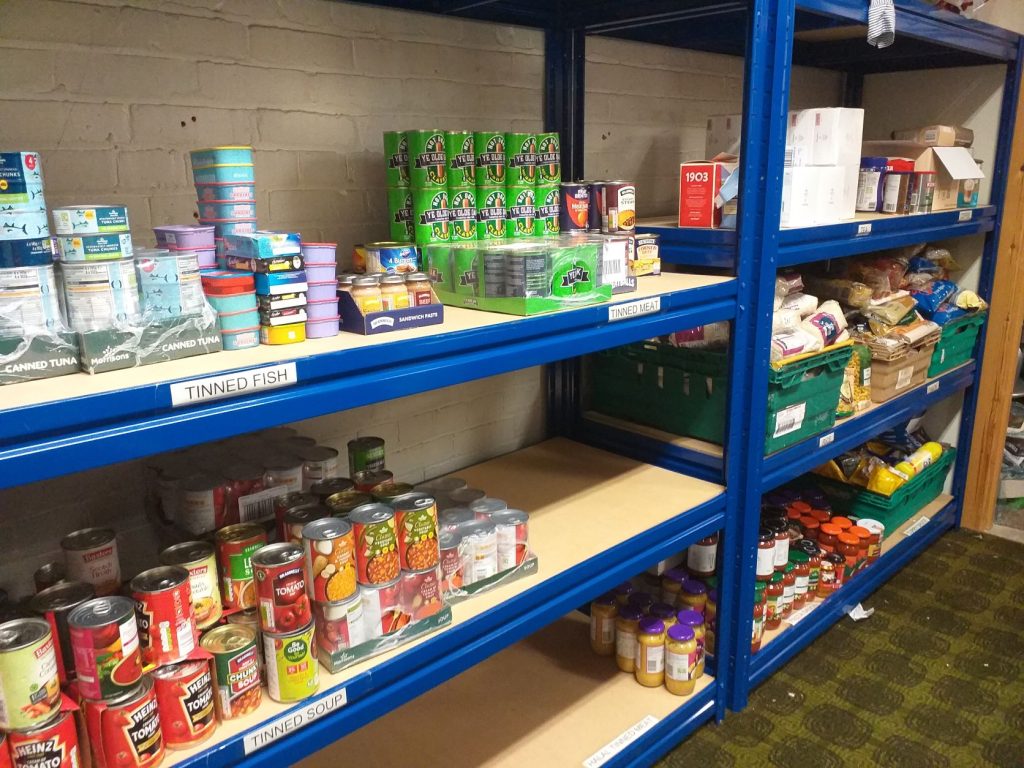 You can help your local food bank by donating non-perishable everyday food, UHT milk, toiletries (including baby and pet items) or kitchen products like washing up liquid and washing powder. Food banks will often have a “shopping list” on their websites of things they’re low on. Give what you would like yourself: if you can buy several things, buy things that go together – for example rice, tinned chilli and kidney beans.
You can help your local food bank by donating non-perishable everyday food, UHT milk, toiletries (including baby and pet items) or kitchen products like washing up liquid and washing powder. Food banks will often have a “shopping list” on their websites of things they’re low on. Give what you would like yourself: if you can buy several things, buy things that go together – for example rice, tinned chilli and kidney beans.
You can also donate money: this means that food banks can stock up on things they’re running low on or which are less frequently donated, and your donation can be worth 25% more at no cost to you with Giftaid.
We do have a few requests around what you donate, as some things we would be unable to give out.
- Please only donate items within their Best Before dates. Even if they’re still fine to eat, it’s a matter of respect.
- Please don’t donate opened items, like half-used jars of herbs. Again it’s about respect, but also food hygiene.
- We can’t take items with alcohol in, even a little. This means no things like Christmas pudding with brandy, sadly!
Supermarkets often have collection points, but you can also contact your local food bank and arrange a convenient time to drop donations off in person. There are more than 2,600 food banks in the UK, so it’s likely that there is one near you that would appreciate your support!
